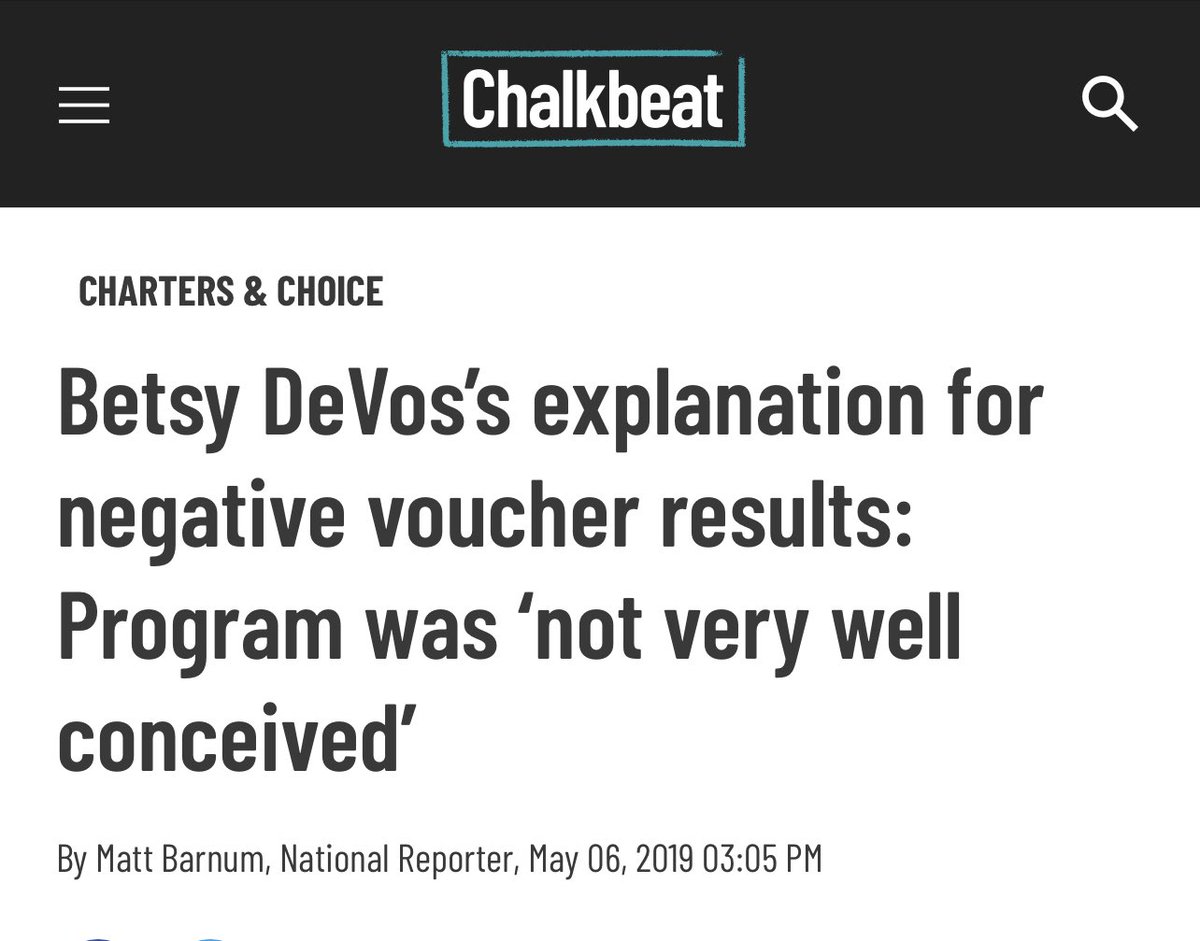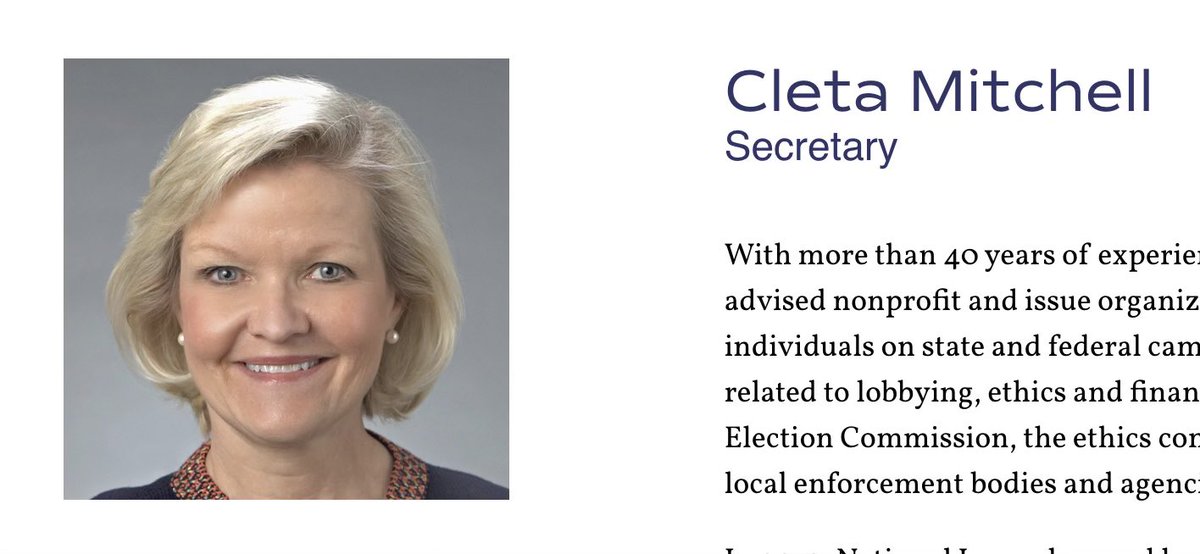🧵
1/ For those who haven’t been neck deep in #schoolchoice debates for two decades let me walk you through the evolution of this argument about outcomes—it was driven by #voucher research.
Early 1990s: #schoolchoice is a rising tide that lifts all academic boats!
1/ For those who haven’t been neck deep in #schoolchoice debates for two decades let me walk you through the evolution of this argument about outcomes—it was driven by #voucher research.
Early 1990s: #schoolchoice is a rising tide that lifts all academic boats!
https://twitter.com/educationgadfly/status/1566890160079269888
2/
1990s cont’d: #vouchers seem to look pretty cool: Cecilia Rouse’s dissertation finds positive test score effects in Milwaukee’s pilot program and so do Jay Greene and Paul Peterson (well, uh, no shock there 🙄)
1990s cont’d: #vouchers seem to look pretty cool: Cecilia Rouse’s dissertation finds positive test score effects in Milwaukee’s pilot program and so do Jay Greene and Paul Peterson (well, uh, no shock there 🙄)
3/
2002-04: Maybe not. Peterson-led work finds + effects of a small privately #voucher program, but then Alan Krueger shows they were highly, ahem, sensitive to model/sample choice. (Who are *you* picking as your starting research QB: Peterson or Krueger?)
journals.sagepub.com/doi/abs/10.117…
2002-04: Maybe not. Peterson-led work finds + effects of a small privately #voucher program, but then Alan Krueger shows they were highly, ahem, sensitive to model/sample choice. (Who are *you* picking as your starting research QB: Peterson or Krueger?)
journals.sagepub.com/doi/abs/10.117…
4/
2005-2010: the first legislatively authorized (WI and USED) evaluations of honest-to-God publicly funded #vouchers. Get ready to break out the champagne and show vouchers work once and for all!!! (Narrator: They don’t Test score effects are null in both sites).
2005-2010: the first legislatively authorized (WI and USED) evaluations of honest-to-God publicly funded #vouchers. Get ready to break out the champagne and show vouchers work once and for all!!! (Narrator: They don’t Test score effects are null in both sites).
5/
2012-2013.
Oh…crap. What the hell is happening in Louisiana? Thanks to Katrina, that state is supposed to be proving school choice works once and for all! But #vouchers there look catastrophic on test scores especially in math.
2012-2013.
Oh…crap. What the hell is happening in Louisiana? Thanks to Katrina, that state is supposed to be proving school choice works once and for all! But #vouchers there look catastrophic on test scores especially in math.
6/
2013: Quick! Find another outcome to study, and fast. How about…attainment?
2013: Quick! Find another outcome to study, and fast. How about…attainment?
7/
2013-2018. Eh, those attainment studies aren’t persuasive enough, because Ohio, DC and Indiana are looking almost as bad on test scores as Louisiana. What do we do?
2013-2018. Eh, those attainment studies aren’t persuasive enough, because Ohio, DC and Indiana are looking almost as bad on test scores as Louisiana. What do we do?
8/
2018-present
Ahhhh ye olde’ parent satisfaction. Safety. Discipline. Who cares about test scores anyway? As long as parents *think* their kids are getting a good education, no need to verify that right?
2018-present
Ahhhh ye olde’ parent satisfaction. Safety. Discipline. Who cares about test scores anyway? As long as parents *think* their kids are getting a good education, no need to verify that right?
9/
2018-present (caveat): we’re still super cool using test scores to close public schools and fail third graders for reading results. Just don’t use them to evaluate #vouchers (or charters, which do much better than vouchers so they make vouchers look even worse)
2018-present (caveat): we’re still super cool using test scores to close public schools and fail third graders for reading results. Just don’t use them to evaluate #vouchers (or charters, which do much better than vouchers so they make vouchers look even worse)
• • •
Missing some Tweet in this thread? You can try to
force a refresh











